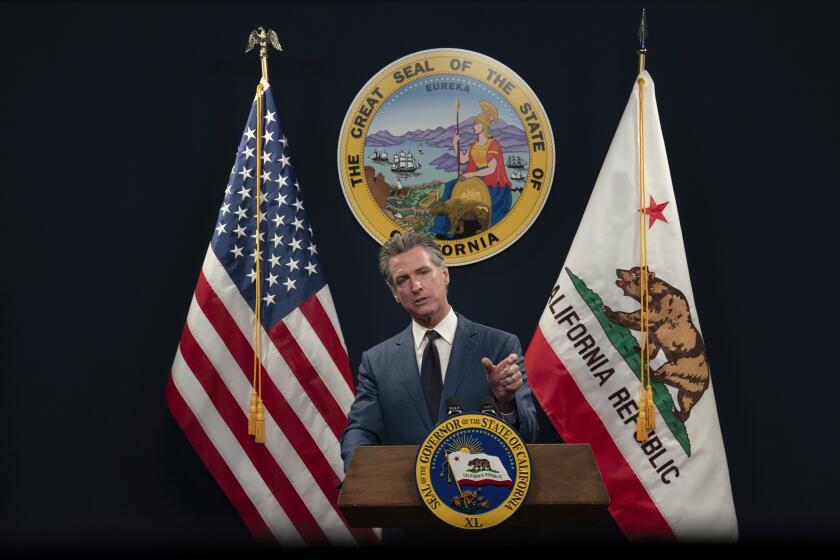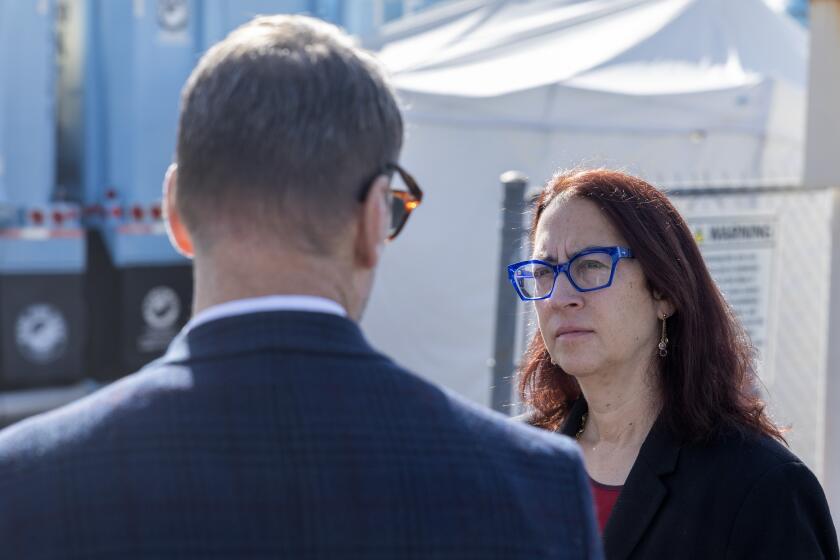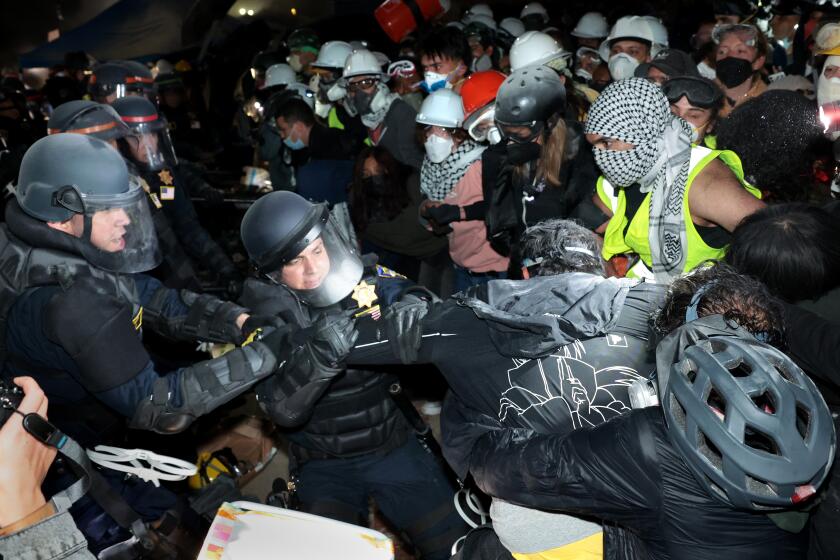Three Underdog Democrats Take Their Campaign Experiences Into Classrooms
When political science professors Guy Kimbrough, Peter Mathews and Fred Smoller lecture to their students about the power of interest groups and the role of money in elections, they offer more than just dry observations gleaned from scholarly journals.
For while all three are capable of elevating their political discussion to a theoretical plane, they are also all in the midst of their own very real campaigns for public office: Kimbrough is a congressional candidate, hoping to unseat Rep. Dana Rohrabacher (R-Lomita), Smoller has his sights set on Assemblyman John R. Lewis (R-Orange), and Mathews is challenging Assemblywoman Doris Allen (R-Cypress).
All three also are Orange County Democrats, and chances are good they’ll still be teaching after the November election rather than lecturing new legislative colleagues on Gramscian hegemony or the decline of the American party system.
But that hasn’t stopped any of them from waging aggressive campaigns. And, if they are unsuccessful in pulling off the upset, their candidacies are an opportunity for themselves and students to learn firsthand about politics, they say.
“You participate in the process and you gain new insights,” said Smoller, a tenured professor at Chapman College, who recently had a book published on media coverage of the White House. “As a teacher . . . I thought this would be an interesting way to create some opportunities for my students.”
Chapman students helped produce a 30-second cable TV ad for Smoller’s campaign that attacks Lewis for alleged ethical transgressions. Smoller’s campaign manager, Rob Crane, is a 21-year-old Chapman senior and political science major who hopes to be a full-time political consultant someday.
“I probably have the only campaign manager in the county who works part-time in a comic book store,” Smoller said.
Kimbrough, who heads the political science program at Mt. San Jacinto College in Riverside County, has a number of his former students who are now at four-year colleges in high-level positions in his campaign.
Mathews, who teaches courses in government, politics and international relations and is co-director of the political science club at Cypress College, has built up an extensive network of student volunteers who work out of an office set up next to a pizza parlor across from the campus.
“This is strictly a grass-roots effort,” said Mathews, who hopes to raise about $16,000 altogether.
All three professor-candidates use students in their campaign, but they have different rules regarding their use. Smoller said he would allow students in his classes to work on his campaign, leaving open the possibility that other students in the class might feel pressured to do the same. Both Mathews and Kimbrough said they do not allow students currently taking their classes to volunteer for them.
“I just don’t think it’s appropriate,” said Kimbrough.
“We can both be totally honest, but there is still the appearance of a conflict-of-interest,” said Mathews. “I’ve had to turn several students down who wanted to volunteer.”
Smoller, however, said he sees no problem using current students, adding that he does not currently have any of his students working on the campaign.
“I have students baby-sit for me too, is that a conflict?” Smoller said. “Given the probable outcome of this race, I really see this as an experience to take part in a campaign, and I don’t want to deprive them of a really meaningful project.”
Another problem the three candidates must consider is how to keep their lectures from becoming campaign forums; all of them use their own campaign experiences to illustrate topics in their lectures, but say they try to keep their own politics from becoming the focus of discussion.
The problem arose for Kimbrough when he showed one of his classes a tape of a candidates forum that included Kimbrough and Rohrabacher and asked the students to critique their performances. “If anything, what I will usually do is I will try to point out some of Rohrabacher’s assets,” said Kimbrough, who is shielded somewhat from the problem because few, if any of his students, are registered to vote in his congressional district. “It’s a fine line you have to walk, though.”
Mathews says he makes an effort to keep his campaign out of the classroom, but if a student asks him his view on an issue, he will offer it.
“Professors, I think, should give their own views as well as other views,” Mathews said.
Smoller, who sees his candidacy as more of a valuable academic exercise than do the other two professors, also draws more freely on his campaign experience in class.
In one recent lecture he delivered to a sociology class, Smoller talked extensively about his motivations for running and what he has learned as a candidate outside the Ivory Tower.
“It’s a completely different set of activities from grading papers, standing up and waving to crowds, shaking hands,” Smoller said. “People don’t defer to Dr. Smoller. They’re not impressed by my academic resume.”
Smoller also talked about something he calls “the fear of politics” in Orange County, a phenomenon that he says he has encountered again and again in his campaign--voters at a street fair asking him why he is being “so political” on a holiday weekend, mall managers asking him not to bother shoppers outside their stores.
More to Read
Get the L.A. Times Politics newsletter
Deeply reported insights into legislation, politics and policy from Sacramento, Washington and beyond. In your inbox three times per week.
You may occasionally receive promotional content from the Los Angeles Times.






